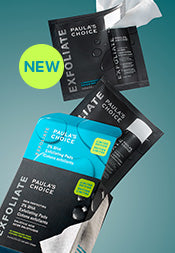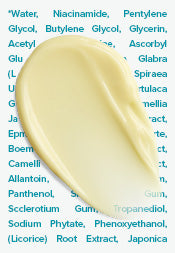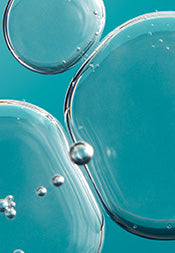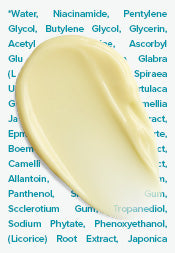Does Honey Help With Acne?
We understand the desire to try anything claiming to help get rid of any type of acne and acne scars, and that’s doubly true when it’s an all-natural alternative like honey. And since pimple popping is an absolute no-go, searching for ways on how to get rid of pimples, tips to reduce oily skin and treat adult and teenage acne brings a full stream of so-called “natural” solutions that claim to treat all. But, trying every acne treatment can get your skin in trouble—either it doesn’t work or it makes matters worse. Getting a handle on acne is all about consistency, not going from one anecdotal remedy to another. That’s where science comes in and that’s where we always go to give you the truth in beauty.
The truth is, when it comes to honey for acne, the research is pretty clear (no pun intended): Using any type of honey, no matter how exotic, won’t cure or heal any type of acne. However, it can play a role in diminishing the visible signs of acne (such as redness and swelling), but it won’t stop breakouts all by itself.
Before you slather on a sticky layer of honey or use a product containing honey on your acne breakouts, know this: Whether you use raw honey, Manuka honey (or the similar Kanuka honey), or any other form of honey, it can’t do for acne what the gold standard ingredients benzoyl peroxide and beta hydroxy acid (BHA, also called salicylic acid) do.
If you decide to go the sweeter route, here’s how to use honey for acne and how it can help fade or get rid of acne scars or blemishes (which technically aren’t scars, but are more accurately called post-acne marks).
Why Is Honey Good for Acne?
The primary reason honey is said to be good for acne is because of its natural antibacterial qualities. Although research supports the value of topical honey for this benefit—mostly in the realm of wound care—honey has not been shown to kill the specific type of bacteria (Propionibacterium acnes) that is the major cause of acne breakouts.
There are some theories of how honey might work to help acne, but keep in mind that theory is not fact. For example, honey’s possible role in helping acne could be about its ability to reduce water content within the pore lining. The sugars (honey is 69% sugar) literally dry up the water, and with less water, the P. acnes can’t thrive deep in the skin, where acne begins. While there is some logic to that, P. acnes thrive mostly on the excess oil in the pore. Therefore, drying up the water doesn’t target the main cause of pimples, which is excessive oil production, and neither does it offer the same pore-penetrating benefits you get from a well-formulated BHA product.
Another antibacterial component of honey is glucuronic acid. This acid is naturally converted to glucose oxidase and, on the skin, an enzyme known as catalase converts the glucose oxidase to hydrogen peroxide, whose mode of action on acne is similar to how benzoyl peroxide works.
The difference, in this case, is that hydrogen peroxide is an irritating ingredient that generates free-radical damage. But, even if the hydrogen peroxide were helpful, the amount of it you would get by applying honey to the skin is 900 times lower than what you could get from applying the liquid form (such as what you find at the drugstore), which means its impact as an acne or acne spot treatment is practically nil.
Another association between honey and acne, which has some validity, is honey’s natural calming properties. The fatty acids, peptides, amino acids, antioxidants, and B vitamins present in honey help visibly minimise the redness common to acne breakouts.
These calming compounds can also help hasten the fading of post-acne blemishes. However, there are many other proven ingredients formulated in serums and moisturizers that can reduce the look of redness and are much easier to use, rather than dabbing pure honey on these marks, even if you opt to try a honey mask to get rid of different types of pimples or mitigate any oily skin symptoms.
Honey Skincare Myths, Busted!
As with most natural ingredients touted as acne skincare solutions, there’s a fair amount of misinformation about honey and its ability to get rid of and prevent acne. Here are some of the most common:
Myth 1: Honey is chemical-free!
Truth: Every natural ingredient is composed of numerous chemicals. Honey is no exception, with most types containing over 100 chemicals! Just as there are good and bad natural ingredients, there are good and bad chemicals. Some of the good chemicals in honey include amino acids, antioxidant compounds known as flavonoids and polyphenols, and minerals. And, as mentioned, one of the chemicals in honey breaks down into hydrogen peroxide on the skin, which is neither good nor beneficial to acne-prone skin.
Myth 2: Honey is great for sensitive, allergy-prone skin
Truth: Although honey has calming effects on the skin, the pollens and bee proteins that are naturally present in all types of honey can be allergens for some. The risk is low (it’s more of an issue when you eat honey), but honey isn’t completely in the clear for sensitive skin.
Myth 3: Raw honey is the best honey for acne; raw Manuka honey is best for removing pimples on the face
Truth: Research hasn’t shown that there is any one type of honey that is superior for acne or any other skin concern; however, processed honey (the kind sold in most grocery stores) does not have as many beneficial substances.
Interestingly, research has shown that the antimicrobial potency of honey varies significantly. Its effectiveness depends on where the honey is sourced, the health and harvesting of the plant, the season, and how it’s stored. Like most natural ingredients, honey is delicate and requires packaging that eliminates or strongly minimises exposure to light and air.
Just like how there are many factors that cause oily skin and pimples to form on areas like the forehead and chin, there are various methods of well-formulated skincare treatments that can aid with acne breakouts. As emphasised earlier, paying attention to specific ingredients in the skincare products you are reaching out for, from facial washes to exfoliants, can significantly change your acne-prone /oily skin for the better. There are, of course, additional factors to consider when looking for ways on how to get rid of acne scars.
Learn more about the types of acne and solutions here.
Shop Paula’s Choice effective skincare for acne-prone skin.
References for this information:
Pharmacognosy Research, April-June 2017, pages 121–127
Central Asian Journal of Global Health, August 2016, ePublication
Frontiers in Microbiology, April 2016, ePublication
BMJ Open, Volume 6, Issue 2, February 2016, ePublication
Journal of Cosmetic Dermatology, December 2013, pages 306–313
Iranian Journal of Basic Medical Science, June 2013, pages 731–742
BioMed Research International, May 2013, ePublication
Frontiers in Microbiology, November 2012, ePublication
Evidence-Based Complementary and Alternative Medicine, June 2009, pages 165–173












